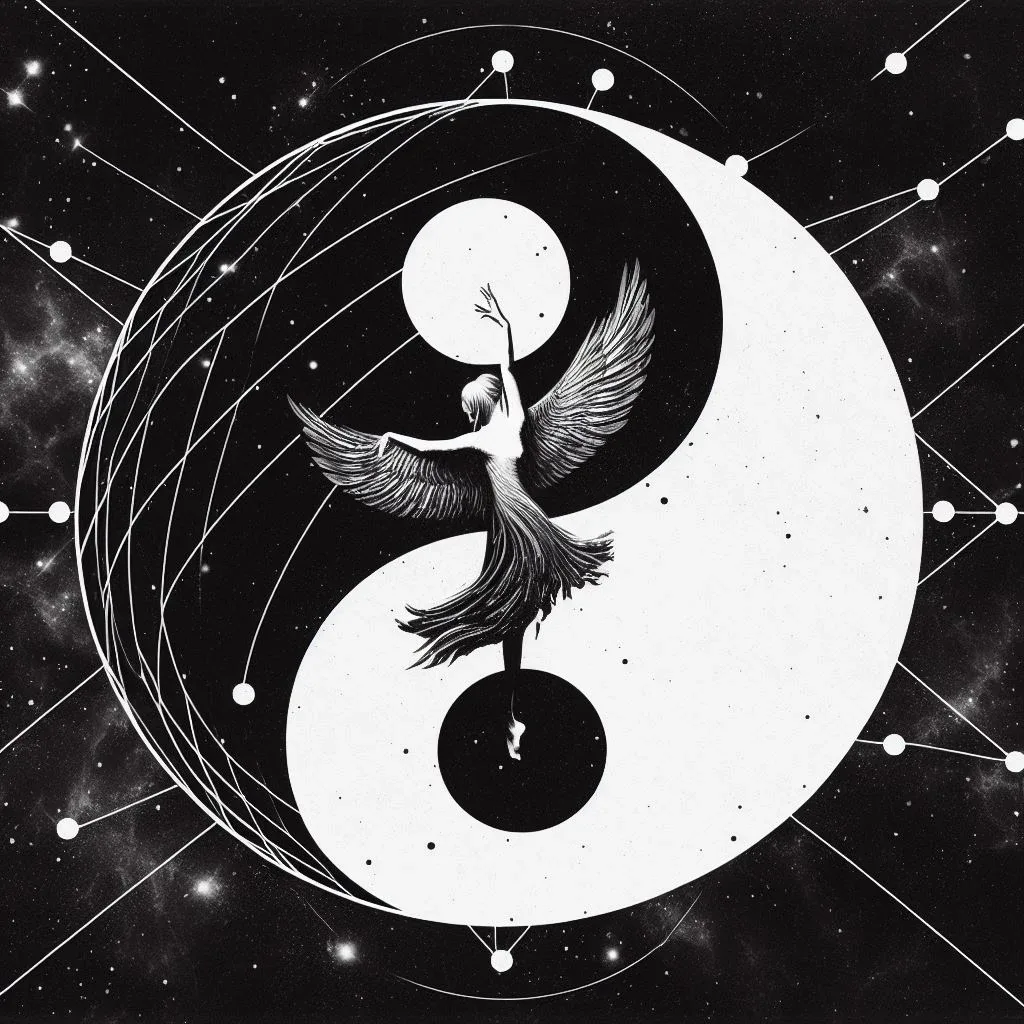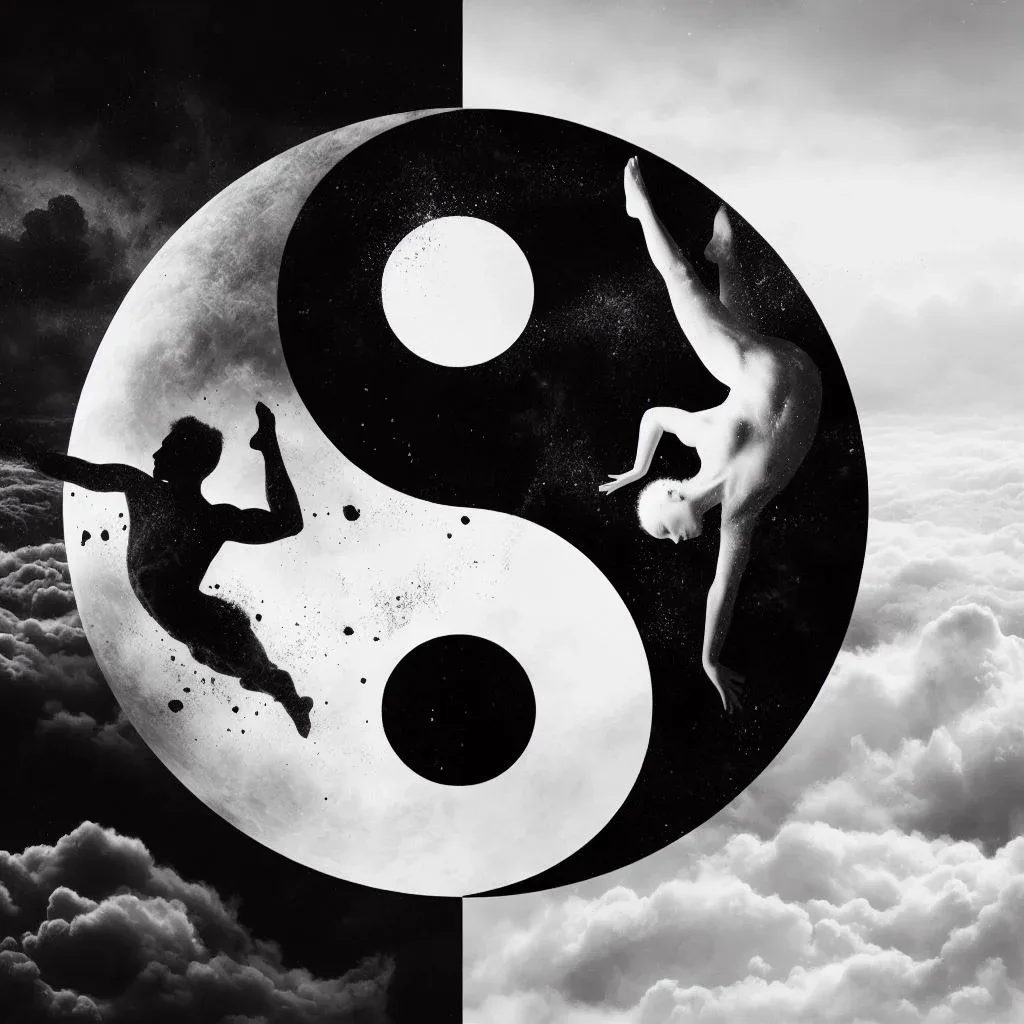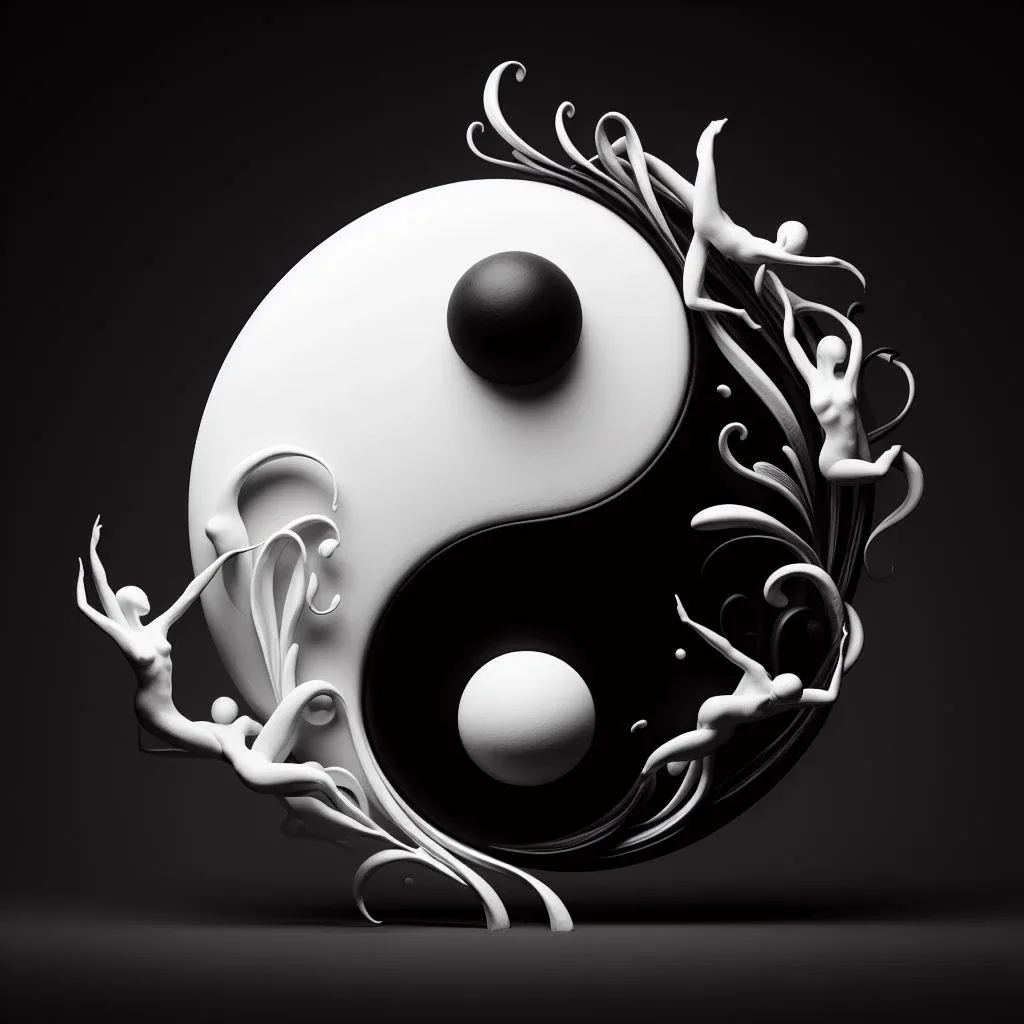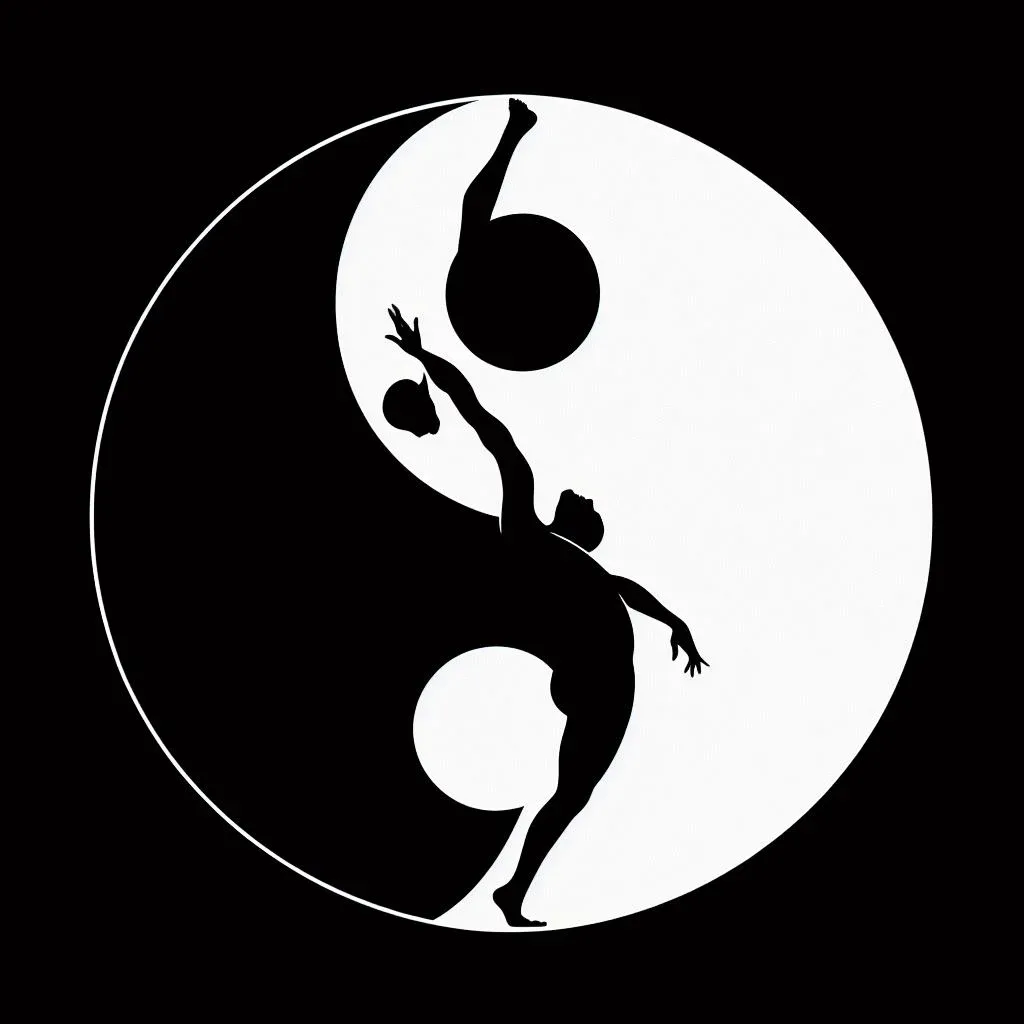In Chinese philosophy, the notion of balance plays a central role, and one of the most emblematic representations of this balance is found in the philosophy of Yin Yang. This conception is deeply rooted in the understanding that life is a constant interaction of opposing forces that complement each other, creating a dynamic balance. In this article, we will explore the philosophy of Yin Yang and how the idea of balance is fundamental to understanding nature, the mind and the universe.

The Concept of Yin Yang
Yin Yang, often represented by a circle divided into two equal parts, one dark (Yin) and the other light (Yang), is an iconic symbol that encapsulates the duality and interdependence of opposing forces. Yin represents darkness, passivity, the feminine and the receptive, while Yang represents light, activity, the masculine and the creative. But the essence of the concept goes beyond these dichotomies. It is the relationship and dynamic interaction between these opposites that truly defines balance.
The Dance of Opposites
Yin Yang philosophy recognizes that all phenomena and all parts of existence are a combination of Yin and Yang forces. This means that nothing is purely Yin or purely Yang. Instead, balance is achieved when these forces complement and harmonize.

Imagine a couple dancing. One dancer (Yin) leads with grace and smoothness, while the other (Yang) follows with energy and strength. In this dance, both play equally important roles. If the leader (Yin) is too passive, the dance can descend into chaos. If the follower (Yang) is excessively dominant, harmony is lost. The true beauty of dance is found in the balanced interaction between these opposites.
Balance in Nature
The Yin Yang philosophy also extends to understanding nature. The Chinese observed that nature follows patterns of seasonal balance, where the Yin of winter is balanced by the Yang of summer. The flowering of plants and the cycle of seasons are reflections of this constant dance of opposing forces.

Furthermore, traditional Chinese medicine, such as acupuncture and herbal medicine, is based on the idea of balancing Qi (vital energy) in the body, harmonizing the Yin and Yang principles. Imbalance is seen as the cause of disease, and treatment aims to restore harmony between these forces.
Balance in Mind and Life
The Yin Yang philosophy is also applied to the mind and lifestyle. Maintaining a healthy balance between work (Yang) and rest (Yin) is essential for a balanced life. The pursuit of knowledge (Yang) and peaceful reflection (Yin) are equally important for personal development.
In the field of human relationships, understanding the philosophy of Yin Yang can promote healthy relationships. Each individual has Yin and Yang characteristics, and respect for the complementary nature of these characteristics is fundamental to harmony in relationships.
Balance in the Universe
The philosophy of Yin Yang is not limited to the Earth, but extends to the universe as a whole. In Chinese cosmology, the balance between Heaven (Yang) and Earth (Yin) is fundamental to the harmony of the cosmos. Stargazing and interpreting celestial motions play an important role in predicting events on Earth.
Conclusion: The Wisdom of Balance
The Yin Yang philosophy reminds us that life is a constant dance of opposites. We cannot appreciate light without darkness, action without pause, heat without cold. The search for balance is a search for harmony and understanding that everything in life is interconnected.
Our understanding of the world and ourselves can be enriched by recognizing and embracing the wisdom of balance. The philosophy of Yin Yang invites us to find harmony in our lives, in our relationships and in our understanding of nature and the universe.
On this journey toward balance, we are reminded that it is not about seeking perfection, but about embracing the imperfection and duality that constitute the essence of existence.
FAQ – Balance in Yin Yang Philosophy

- What is the concept of Yin Yang? Yin Yang is a fundamental concept in Chinese philosophy that represents the duality and interdependence of opposing forces. Yin represents characteristics such as darkness, passivity and the feminine, while Yang represents light, activity and the masculine. However, the essence of the concept lies in the dynamic interaction of these forces.
- How is balance achieved in Yin Yang? Balance in Yin Yang is achieved when opposing forces complement and harmonize. Nothing is purely Yin or purely Yang, and true harmony is found in the balanced interaction of these opposites.
- How is balance applied in nature? The philosophy of Yin Yang is applied to understanding nature, observing seasonal patterns of balance, where winter (Yin) is balanced by summer (Yang). Additionally, traditional Chinese medicine aims to balance Qi in the body to maintain health.
- How is balance important in the mind and in life? Maintaining a healthy balance between work (Yang) and rest (Yin) is essential for a balanced life. Balance is also applied to the pursuit of knowledge (Yang) and peaceful reflection (Yin) for personal development.
- How is balance related to the universe? The Yin Yang philosophy extends to the universe, where the balance between Heaven (Yang) and Earth (Yin) is fundamental to the harmony of the cosmos. The observation of stars and celestial movements is an integral part of Chinese cosmology.
- How can I apply the Yin Yang philosophy in my life? You can apply the Yin Yang philosophy in daily life by seeking balance in your actions, rest, relationships and understanding the duality that permeates existence. Practicing harmony between opposing forces can lead to a more balanced and meaningful life.
- Is there any relationship between Yin Yang and other philosophies? The concept of Yin Yang is unique to Chinese philosophy, but the idea of balance and duality is found in numerous philosophies and belief systems around the world. It is a reflection of the intrinsic nature of reality.
- Does the search for balance mean the search for perfection? No, the search for balance does not mean the search for perfection. It means embracing the imperfection and duality that make up life. Balance is not the absence of challenges, but the ability to deal with them harmoniously.
- How does the Yin Yang philosophy influence Chinese culture? The philosophy of Yin Yang is deeply rooted in Chinese culture and influences medicine, spirituality, art, architecture and the way Chinese people understand the world and life. It is an essential part of Chinese thought.
We hope this FAQ has clarified your doubts about balance in the Yin Yang philosophy. If you have any further questions, feel free to explore this fascinating concept and its application in your own life.





